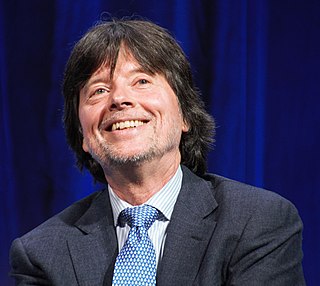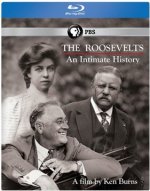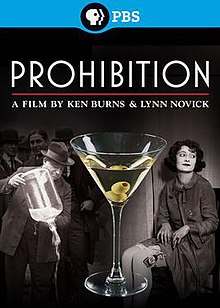
Kenneth Lauren Burns is an American filmmaker known for his documentary films and television series, many of which chronicle American history and culture. His work is often produced in association with WETA-TV or the National Endowment for the Humanities and distributed by PBS.
Daniel Okrent is an American writer and editor. He is best known for having served as the first public editor of The New York Times newspaper, inventing Rotisserie League Baseball, and for writing several books. In November 2011, Last Call won the Albert J. Beveridge prize, awarded by the American Historical Association to the year's best book of American history. His most recent book, published May 2019, is The Guarded Gate: Bigotry, Eugenics, and the Law That Kept Two Generations of Jews, Italians, and Other European Immigrants Out of America.

Peter Coyote is an American actor, director, screenwriter, author, and narrator of films, theater, television, and audiobooks. He worked on films, such as E.T. the Extra-Terrestrial (1982), Cross Creek (1983), Jagged Edge (1985), Bitter Moon (1992), Kika (1993), Patch Adams (1998), Erin Brockovich (2000), A Walk to Remember (2002), and Femme Fatale (2002).

Geoffrey Champion Ward is an American editor, author, historian and writer of scripts for American history documentaries for public television. He is the author or co-author of 19 books, including 10 companion books to the documentaries he has written. He is the winner of seven Emmy Awards.

In the United Kingdom, a tied house is a public house required to buy at least some of its beer from a particular brewery or pub company. That is in contrast to a free house, which is able to choose the beers it stocks freely.

The War is a seven-part American television documentary miniseries about World War II from the perspective of the United States. The program was directed by American filmmakers Ken Burns and Lynn Novick, written by Geoffrey Ward, and narrated primarily by Keith David. It premiered on September 23, 2007. The world premiere of the series took place at the Palace Theater in Luverne, Minnesota, one of the towns featured in the documentary. It was funded in part by the National Endowment for the Humanities.

Wayne Bidwell Wheeler was an American attorney and longtime leader of the Anti-Saloon League. The leading advocate of the prohibitionist movement in the late 1800s and early 1900s, he played a major role in the passage of the Eighteenth Amendment to the United States Constitution, which outlawed the manufacture, distribution, and sale of alcoholic beverages.

Roy Olmstead was one of the most successful and best-known bootleggers in the Pacific Northwest region during American Prohibition. A former lieutenant in the Seattle Police Department, he began smuggling alcohol from Canada while still on the force. Following his arrest for that crime, he lost his job in law enforcement and turned to illegally importing and distributing alcohol as a full-time and highly profitable occupation. Eventually, wiretaps of his phones provided sufficient evidence for his arrest and prosecution, despite an appeal that reached the Supreme Court regarding the legality of the wiretap.
William Edward Leuchtenburg is an American historian. He is the William Rand Kenan Jr. Professor Emeritus of History at the University of North Carolina at Chapel Hill, and a leading scholar of the life and career of Franklin Delano Roosevelt.

The Prohibition era was the period from 1920 to 1933 when the United States prohibited the production, importation, transportation, and sale of alcoholic beverages. The alcohol industry was curtailed by a succession of state legislatures, and Prohibition was formally introduced nationwide under the Eighteenth Amendment to the United States Constitution, ratified on January 16, 1919. Prohibition ended with the ratification of the Twenty-first Amendment, which repealed the Eighteenth Amendment on December 5, 1933.

Lynn Novick is an American director and producer of documentary films, widely known for her work with Ken Burns.

The Roosevelts: An Intimate History is a 2014 American documentary television miniseries directed and produced by Ken Burns. It covers the lives and times of the three most prominent members of the Roosevelt family, Theodore Roosevelt, a Republican and the 26th President of the United States; Franklin D. Roosevelt, a Democrat, the 32nd President of the United States, and fifth cousin of Theodore; and Eleanor Roosevelt, the longest-serving First Lady of the United States, a niece of Theodore, and wife of Franklin. As a result of the influence of Theodore and Franklin as Presidents, as well as Eleanor as First Lady, a modern democratic state of equal opportunity was begun in the United States. The series begins with the birth of Theodore in 1858 and ends with the death of Eleanor in 1962.

Oklahoma Beer Act of 1933 is a United States public law legalizing the manufacture, possession, and sale of low-point beer in the State of Oklahoma. The Act of Congress cites the federal statute is binding with the cast of legal votes by the State of Oklahoma constituents or legislative action by the Oklahoma Legislature.

The Vietnam War is a 10-part American television documentary series about the Vietnam War produced and directed by Ken Burns and Lynn Novick, written by Geoffrey C. Ward, and narrated by Peter Coyote. The first episode premiered on PBS on September 17, 2017. This series is one of the few PBS series to carry a TV-MA rating.

The Vietnam War (Original Score) is an electronic soundtrack album by Trent Reznor and Atticus Ross for Ken Burns and Lynn Novick's television documentary series The Vietnam War which first aired on PBS in September 2017. The album was released on vinyl, CD and digitally on September 15, 2017 by Universal Music Enterprises and Reznor's own label The Null Corporation.

Country Music is a documentary miniseries created and directed by Ken Burns and written by Dayton Duncan that premiered on PBS on September 15, 2019. The eight-part series chronicles the history and prominence of country music in American culture.
College Behind Bars is a 2019 American television documentary series, directed by Lynn Novick, which originally aired on PBS. It focuses on the lives and academic careers of inmates in the Bard Prison Initiative.
The Better Angels Society is a 501(c)3 organization that was founded by supporters of Ken Burns to raise funds for his work from individuals of wealth and private family foundations. They have grown into the preeminent organization dedicated to engaging Americans with their history through documentary film. Katherine Malone-France was appointed President & CEO in 2023, taking the reins from Amy Margerum Berg who served as the organization's president between 2016-2023.
Hemingway is a documentary film on the life of Ernest Hemingway produced by Ken Burns and Lynn Novick. It first aired on PBS in April 2021.

The U.S. and the Holocaust is a 2022 three-part documentary miniseries about the United States' response to the Holocaust. The series was directed by Ken Burns, Lynn Novick, and Sarah Botstein, and was written by frequent Burns collaborator Geoffrey C. Ward.















